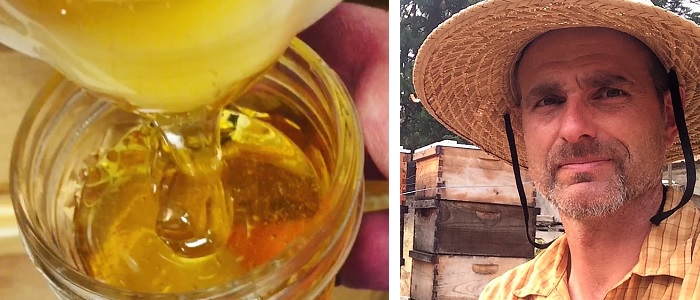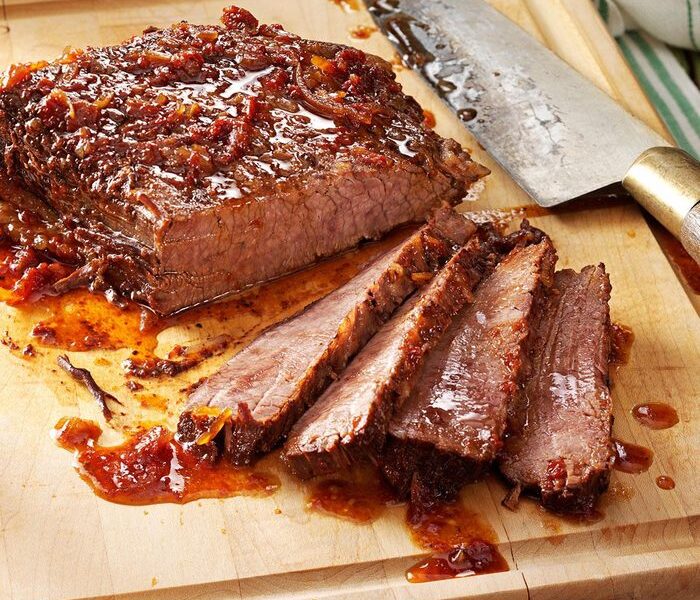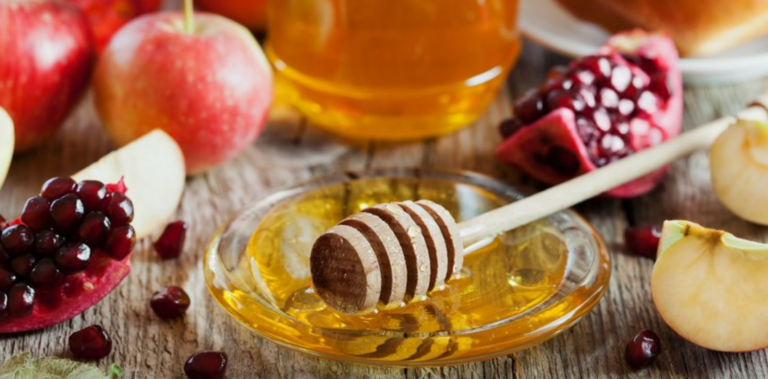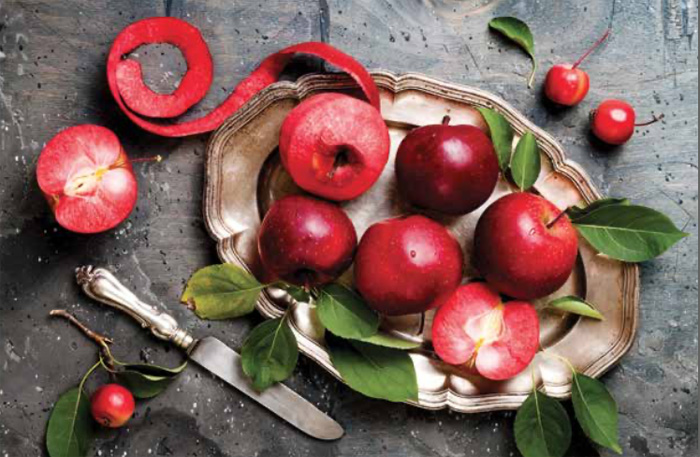
Oregon offers a plethora of honey flavors to fulfill the custom of eating apples and honey to usher in a sweet New Year.
“Raw honey is inherently kosher,” says Oregon Kosher Executive Director Tuvia Berzow. Bees, like all insects, are not kosher, and the laws of kashrut say nonkosher animals cannot produce kosher products. However, Tuvia says honey is considered kosher for two important reasons: The Torah calls Israel “the land of milk and honey,” and “Honey is not a secretion from the bee; it is a byproduct.” He adds that royal jelly, which worker bees feed the queen and which is used in some health food products, is not kosher since it is a secretion from the bee.
Processed honey or honey with added flavors requires kosher certification. Oregon Kosher certifies Honey Ridge Farms honey crème line – Blackberry, Blood Orange, Clover, Coconut, Lavender, Lemon, Lemon-Lavender, Spiced and Raspberry. The whipped honey crèmes are certified Kosher Parve; they never cooked, retaining the natural goodness of raw honey, fruit and spice in a smooth, spreadable blend.
Raw honey obtained from producers is inherently kosher as long as it is not bottled with equipment that has processed nonkosher items. That fact makes it easy for observant Jews to sample various raw honey flavors at local honey producers.
“Honey is like tasting wine,” says Oregon Honey Festival Director Sharon Schmidt. “The flavor is dictated by the bloom the nectar is from, weather, minerals in the soil and pollutants in the atmosphere, which we’d like less of.”
She says qualities used to describe the tremendous variations in honey include sweet, salty, bitter, astringent, smooth, runny and granulated.
“You’d be surprised at what your taste buds will want more of,” Sharon adds. “The only way to find out is to try it.”
“Honey was my gateway drug to beekeeping,” she says. Growing up in the Midwest she thought bottles of Sue Bee honey on grocery store shelves were what all honey tastes like. Then she sampled honey from bees pollinating Meadowfoam, an annual oilseed crop with a limited growing range centered in the Willamette Valley.
“Meadowfoam is the most significant bloom for Oregon honey,” says Sharon. “It tastes sort of like marshmallows.”
Beekeeper Ted Graumann, who is a member of Temple Emek Shalom in Ashland, says that other significant major nectar flows in the region include spring vetch, summer blackberry and late summer starthistle.
Ted, who has about 150 to 175 hives, got into beekeeping five years ago “to get back to the basics of helping the bees to make a product that all love and appreciate.”
Ted says he also became a beekeeper in part “to help with the bee losses of recent times.”
Bees don’t just make honey; bees serve a vital role as pollinators of the world’s food crops. According to the Food and Agriculture Organization of the United Nations, “of the top 100 crop species that provide 90% of food worldwide, 71 are pollinated by bees.”





